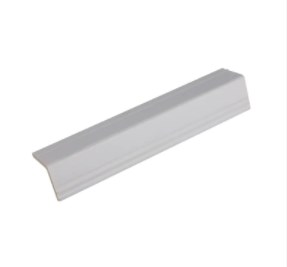The production of Polystyrene (PS) mouldings is a complex process that requires a high level of precision and control to ensure that every product meets the desired quality and specifications. Factories specializing in PS mouldings employ a variety of strategies and methodologies to maintain uniformity throughout their production lines. This article explores the multifaceted approach these factories take to guarantee that each PS moulding is produced to the highest standards.
Firstly, the foundation of quality in PS mouldings production begins with the selection of raw materials. Manufacturers must choose high-quality polystyrene resins that are free from impurities and have the right properties for the intended application. This initial step is critical, as the quality of the raw material directly impacts the final product's characteristics.
Once the raw materials are secured, the production process itself is subject to stringent controls. The extrusion process, where the polystyrene is heated and shaped into mouldings, is carefully monitored. Temperature control is paramount, as variations can lead to inconsistencies in the final product's dimensions and physical properties. Modern PS mouldings factories often use computer-controlled systems to maintain precise temperature settings throughout the process.
Mould design is another critical aspect that affects the quality and specifications of PS mouldings. High-precision moulds are engineered to ensure that the extruded product has the exact shape and dimensions required. Regular maintenance and inspection of these moulds are conducted to prevent wear and tear, which could otherwise lead to deviations in the product's specifications.
In addition to process control, quality assurance (QA) is an integral part of the production cycle. Factories employ a range of QA measures, including in-process inspections, where partially finished products are checked for defects. This allows for immediate corrective action if any issues are detected, preventing the production of substandard PS mouldings.
After the production of individual PS mouldings, the final stage involves packaging and shipping. Even at this stage, quality control measures are in place to ensure that the products are not damaged or contaminated. Protective packaging materials are used, and handling procedures are strictly followed to maintain the integrity of the PS mouldings.
Furthermore, many PS mouldings factories implement a system of statistical process control (SPC). SPC involves collecting data at various stages of the production process and analyzing it for patterns or deviations from the norm. This allows for proactive measures to be taken before any significant quality issues arise.
Continuous improvement is a key philosophy in many PS moulding factories. Regular training and development programs for employees ensure that the workforce is up-to-date with the latest production techniques and quality control practices. This commitment to ongoing learning and improvement helps to maintain a high standard of quality across all PS mouldings produced.
Finally, customer feedback is invaluable in ensuring the quality and specifications of PS mouldings. Manufacturers often have systems in place to collect and analyze feedback from clients, which can then be used to make improvements to the production process.
In conclusion, the production of PS mouldings is a highly controlled process that involves careful selection of raw materials, precise control of the extrusion process, meticulous mould design, rigorous quality assurance measures, and a commitment to continuous improvement. By implementing these strategies, PS mouldings factories can ensure that every product that leaves their facility meets the highest standards of quality and specifications.

